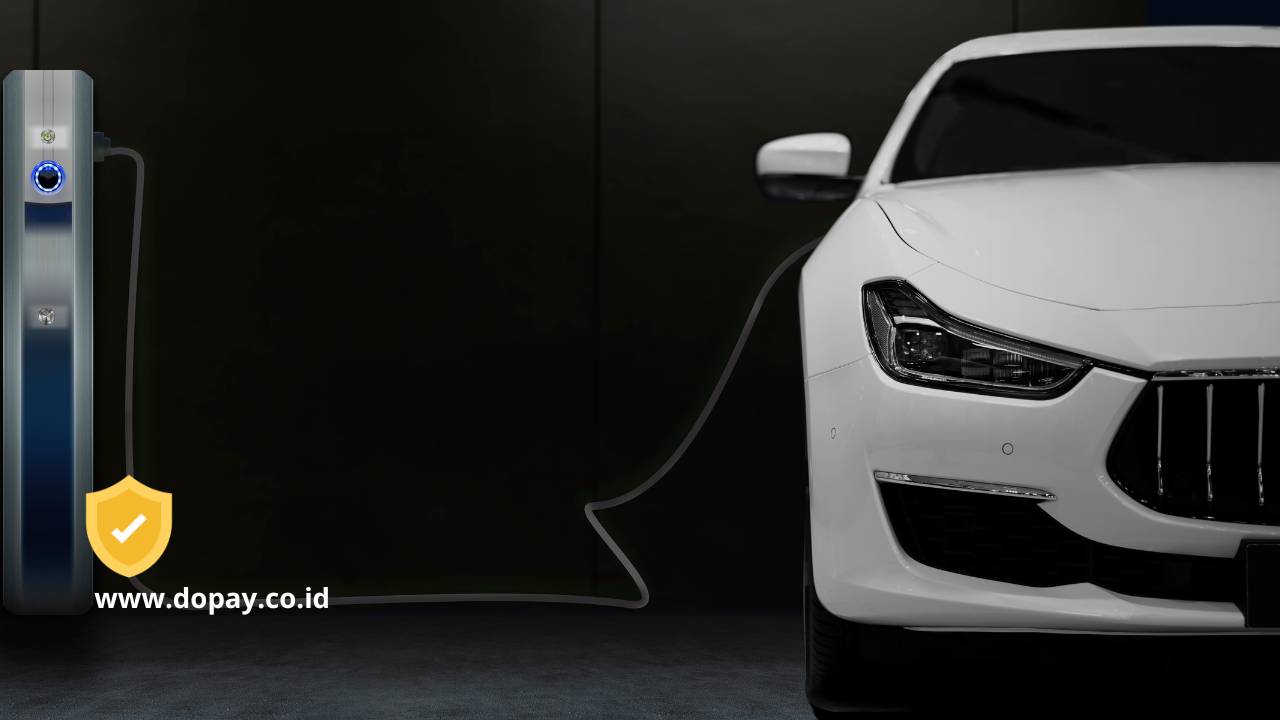A Comprehensive Guide
Electric vehicles (EVs) are becoming increasingly popular as more people look for sustainable and eco-friendly transportation options. With the rising number of electric cars on the road, the need for specialized electric vehicle insurance has also grown. Choosing the right insurance for your EV is crucial to ensure that you are fully covered in case of an accident or other unexpected events. This guide will help you understand the key factors to consider when selecting the best electric vehicle insurance policy, including coverage options, premium determinants, and tips for saving money.
Understanding Electric Vehicle Insurance Coverage
Electric vehicle insurance shares some similarities with traditional auto insurance, but there are unique aspects due to the nature of EVs. Here are the main types of coverage you should consider:
- Liability Coverage
- What It Covers: Liability coverage pays for damages or injuries you cause to others in an accident. It includes bodily injury liability and property damage liability.
- Why It’s Important: This coverage is usually mandatory and protects you from paying out-of-pocket for injuries or damages you cause to other people or their property.
- Collision Coverage
- What It Covers: Collision coverage pays for damage to your electric vehicle caused by a collision with another vehicle or object, regardless of fault.
- Why It’s Important: Since EVs often have expensive parts and repairs, having collision coverage can help you avoid significant out-of-pocket costs.
- Comprehensive Coverage
- What It Covers: This coverage protects against non-collision-related damages, such as theft, vandalism, fire, or weather damage.
- Why It’s Important: Electric cars can have high repair costs, making comprehensive coverage essential for protecting your investment.
- Uninsured/Underinsured Motorist Coverage
- What It Covers: This insurance pays for injuries and damages if you’re hit by a driver who doesn’t have sufficient insurance.
- Why It’s Important: With this coverage, you are financially protected in cases where the at-fault driver lacks adequate insurance.
- EV-Specific Coverage Options
- Battery Coverage: Since the battery is the most expensive part of an electric vehicle, some insurers offer special coverage for battery repairs or replacements.
- Charging Equipment Coverage: This covers damages to home charging stations or portable chargers.
- Roadside Assistance for EVs: Electric vehicle roadside assistance may include services like towing to the nearest charging station if your battery runs out.
Factors that Affect Electric Vehicle Insurance Premiums
When determining insurance premiums for electric vehicles, insurers take several unique factors into account. Understanding these factors can help you make informed decisions when choosing a policy.
- Vehicle Make and Model
- EVs with higher values, luxury models, or those with complex technology can have higher insurance premiums due to the cost of repairs and replacement parts.
- Battery Type and Capacity
- The battery type and capacity can influence repair costs. High-capacity batteries may lead to higher premiums since they are more expensive to replace.
- Cost of Repairs and Replacement Parts
- Repairs for electric vehicles can be more costly compared to traditional cars because of specialized parts and labor. This can increase insurance premiums.
- Driving Habits and Mileage
- Insurance companies may offer discounts for drivers with lower annual mileage, as lower mileage reduces the likelihood of accidents. Some insurers also have special rates for EVs driven primarily in urban areas.
- Location and Parking Situation
- Where you park your electric vehicle (e.g., in a garage vs. on the street) and the safety of your neighborhood can affect premiums. Areas with high crime rates may lead to higher premiums.
- Owner’s Driving Record
- A clean driving record can help lower premiums, while previous accidents or traffic violations can increase insurance costs.
- Safety Features and Anti-Theft Devices
- EVs equipped with advanced safety features like automatic emergency braking, lane-keeping assist, and anti-theft devices may qualify for discounts.
Tips for Choosing the Best Electric Vehicle Insurance
When selecting an electric vehicle insurance policy, keep these tips in mind to find the best coverage at the most affordable rate:
- Compare Multiple Insurance Providers
- Don’t settle for the first quote you receive. Comparing quotes from different insurance providers can help you find the best rates and coverage options.
- Look for Discounts Specific to Electric Vehicles
- Many insurance companies offer discounts specifically for electric vehicles, such as eco-friendly vehicle discounts or lower premiums for vehicles with advanced safety features.
- Consider Bundling Insurance Policies
- Bundling your electric vehicle insurance with other insurance policies, such as home or renters insurance, may qualify you for a discount.
- Evaluate Your Coverage Needs Based on Your Vehicle’s Value and Use
- If you have a high-end electric vehicle, you may want comprehensive coverage with higher limits. For lower-value EVs, basic coverage may suffice.
- Check for Roadside Assistance and Charging Coverage
- Make sure your insurance policy includes specialized coverage options for electric vehicles, such as towing to the nearest charging station.
- Explore Pay-Per-Mile Insurance for Low Mileage Drivers
- If you drive your EV infrequently, pay-per-mile insurance could be a cost-effective option that saves you money.
- Review Your Policy Annually
- Reassess your insurance policy each year to ensure you still have the best coverage for your needs. As your driving habits or vehicle value change, your insurance needs may also change.
Electric Vehicle Insurance vs. Traditional Car Insurance
Although there are similarities between electric vehicle insurance and traditional car insurance, some key differences should be considered:
- Repair Costs:
- Electric vehicles often require specialized repair services and parts, which can increase repair costs compared to conventional vehicles. This can result in higher insurance premiums for EVs.
- Battery Coverage:
- Traditional car insurance does not typically include battery-specific coverage. However, for electric vehicles, battery damage or replacement costs can be covered under specialized policies.
- Discounts for Eco-Friendly Vehicles:
- Many insurance companies offer specific discounts for electric or hybrid vehicles as they are considered more environmentally friendly.
- Unique Coverage Options for EVs:
- Unlike traditional car insurance, some insurers provide coverage for EV-specific needs, such as charging equipment or battery warranties.
Saving Money on Electric Vehicle Insurance
Electric vehicle insurance premiums can be higher than traditional car insurance, but there are ways to save money. Here are some strategies:
- Install Anti-Theft Devices
- Adding anti-theft devices to your EV can lower premiums by reducing the risk of theft.
- Choose a Higher Deductible
- Opting for a higher deductible can lower your monthly premiums. However, be sure you can afford the deductible in case of a claim.
- Maintain a Good Driving Record
- Safe driving can help you qualify for lower rates. Avoid traffic violations and accidents to keep your insurance costs down.
- Inquire About Low Mileage Discounts
- If you drive your EV infrequently, some insurers may offer discounts for low annual mileage.
- Enroll in a Usage-Based Insurance Program
- Some insurance companies offer usage-based programs that track your driving habits using telematics. If you’re a cautious driver, you could receive significant discounts.
- Invest in a Home Charging Station
- Installing a home charging station and parking your car in a garage may reduce premiums by lowering the risk of theft or vandalism.
Frequently Asked Questions (FAQ)
Q1: Is electric vehicle insurance more expensive than traditional car insurance?
A1: Yes, electric vehicle insurance can be more expensive due to higher repair costs, specialized parts, and technology. However, many insurance companies offer discounts for eco-friendly vehicles, which can help offset the higher premiums.
Q2: Does electric vehicle insurance cover the battery?
A2: Some insurance policies include specific coverage for battery repairs or replacement. It is important to verify whether your policy covers the battery and under what conditions.
Q3: Are there special discounts available for electric vehicles?
A3: Yes, many insurers offer discounts specifically for electric vehicles, including eco-friendly vehicle discounts, discounts for advanced safety features, and lower rates for vehicles with low annual mileage.
Q4: Do I need special roadside assistance for my electric vehicle?
A4: While traditional roadside assistance covers general services like towing, EV-specific roadside assistance may include services such as towing to the nearest charging station or assistance with charging.
Q5: How can I reduce the cost of my electric vehicle insurance?
A5: You can reduce costs by comparing quotes, taking advantage of EV-specific discounts, maintaining a good driving record, choosing a higher deductible, and exploring pay-per-mile or usage-based insurance options.
By understanding the factors that affect electric vehicle insurance premiums and knowing what coverage options are available, you can make an informed decision and choose the best policy for your electric vehicle.
Read also: Difference Between All Risk Insurance and Total Loss Only (TLO) Car Insurance



